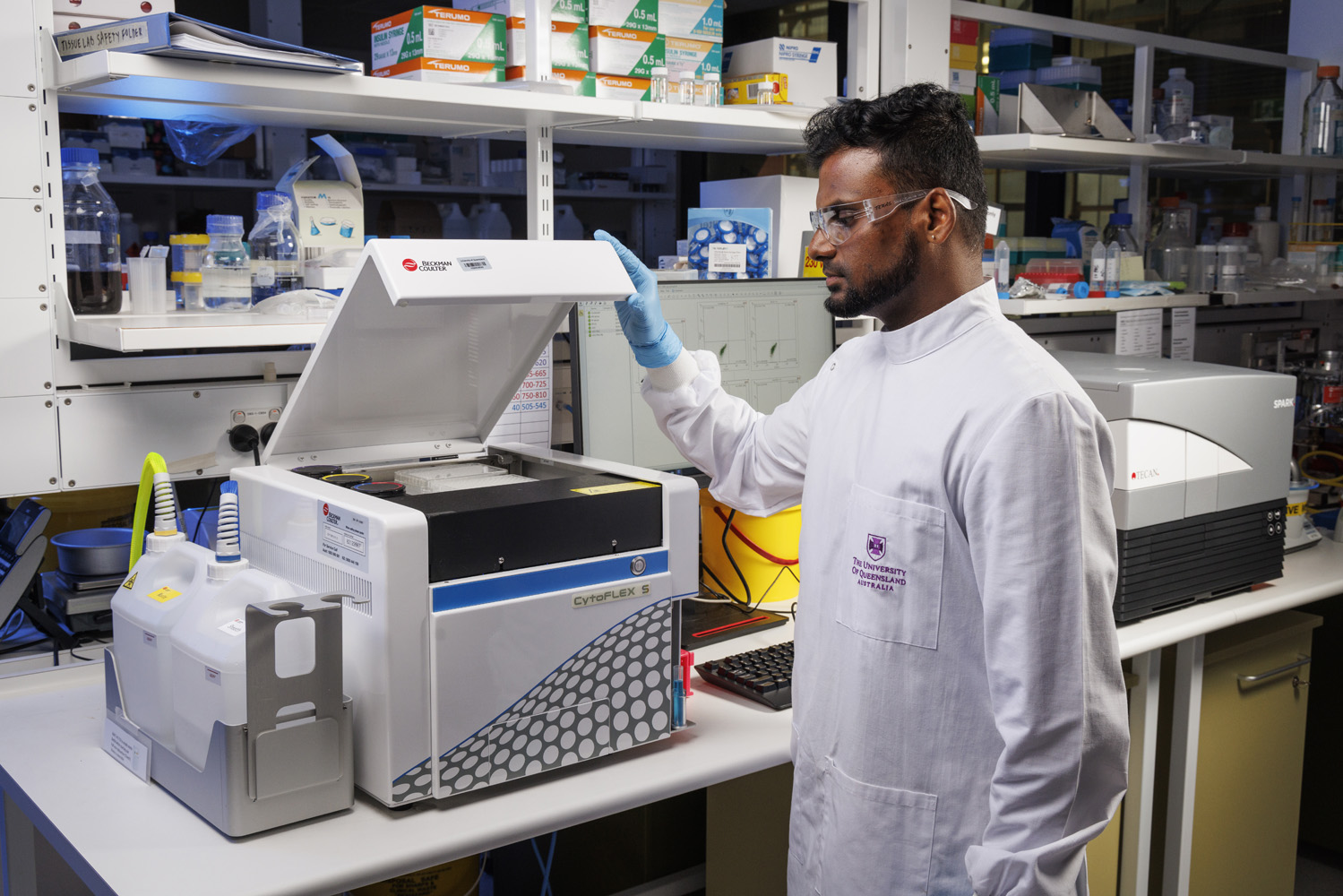AdvanCell is an Australian-based clinical-stage radiopharmaceutical company that is developing a range of novel therapies to boost cancer survival rates and improve patients’ quality of life.
Delivering hyper-accurate cancer treatments
AdvanCell specialises in targeted alpha therapies that deliver radiation directly to cancer cells by equipping highly specific targeting molecules with alpha emitting isotopes.
The company uses its proprietary alpha isotope generator to produce the isotope Lead-212, the ideal isotope for targeted alpha therapy and the active component in its therapeutic pipeline.
Leveraging AIBN facilities to speed up production
AdvanCell is collaborating with the AIBN across several federally funded projects to improve radionuclide production and fast track the delivery of cutting-edge cancer treatments to patients.
AdvanCell is also one of several radiopharmaceutical industry players involved in the $4.8 million ARC Research Hub for Advanced Manufacture of Targeted Radiopharmaceuticals that will be headquartered at the AIBN and led by Professor Kris Thurecht.

AdvanCell Chief Scientific Officer and AIBN Adjunct Associate Professor Simon Puttick said one of the most promising features of the company’s collaboration with the AIBN was the small peptide discovery function being folded into AMTAR, and the development of protein constructs to raise those peptide binders.
“The protein expression side of AIBN is fantastic,” Dr Puttick said.
“We’ve worked closely with the teams at both the Protein Expression Facility (PEF) and National Biologics Facility (NBF) and we may eventually move to clinical scale material.
“Chemical conjugates to those proteins at a clinical grade material level, I think is the next evolution that's required and AdvanCell would certainly be very supportive in helping AIBN to get that established.”
The pre-clinical phase: a crucial part of the biotherapeutics pipeline
Dr Puttick says his company’s place in the Queensland Biotherapeutics Pipeline differs depending on the nature of each project.
“For example, we have an ARC Linkage project with Professor Thurecht that is very much more in the discovery phase, a fundamental science collaboration that is not a direct commercial output,” Dr Puttick says.
“Other work we do with the AIBN – I would say our predominant interaction - is in the preclinical phase.
“And while we're not using protein vectors or mRNA, as we grow as a company, we may move into that biologic space. And at that point, I would definitely be working closely with the NBF and their biomanufacturing networks.
“In terms of the production of clinical grade material for clinical research, I think there is good capacity there. This might include the development of a cell bank, for example, for the manufacture of a phase one batch.”
Changing the narrative on industry-academic collaboration
“I think different industries want different things from academia, and academia is not really set up to deliver for industry most of the time,” Dr Puttick said.
“The academic mindset and pace to be frank is often not conducive with industry KPIs. But I think AIBN is breaking that mould by engaging more with industry.
“We need academics with pharma experience or with industry experience, who understand what a deliverable is. The AIBN does quite well there because the researchers work with a lot of industry partners. The AIBN has learned over time what is valuable to industry.”
Join The Network
Stay on top of our industry news and developments, events and opportunities, by joining The Network
Sign up today